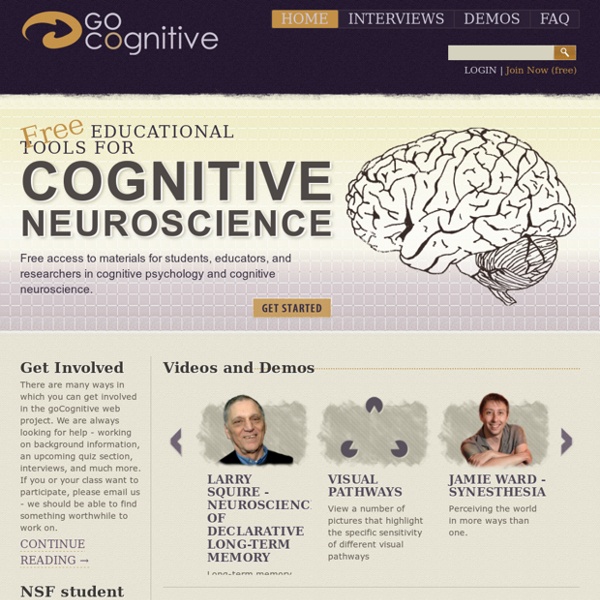



A. H. Maslow (1943) A Theory of Human Motivation Classics in the History of Psychology An internet resource developed byChristopher D. GreenYork University, Toronto, OntarioISSN 1492-3713 Personality Tests By John M. Grohol, Psy.D. All of our psychological quizzes below are free, and most are based upon scientific research. They are instantly and automatically scored once completed, giving you immediate results. Dreyfus model of skill acquisition In the fields of education and operations research, the Dreyfus model of skill acquisition is a model of how students acquire skills through formal instruction and practicing. Brothers Stuart and Hubert Dreyfus proposed the model in 1980 in an influential, 18-page report on their research at the University of California, Berkeley, Operations Research Center for the United States Air Force Office of Scientific Research.[1] The original model proposes that a student passes through five distinct stages: novice, competence, proficiency, expertise, and mastery. The original five-stage model[edit] Michael Eraut summarized the five stages of increasing skill as follows:[2] Instead the original Dreyfus model is based on four binary qualities:
Learning styles Learning style is an individual's natural or habitual pattern of acquiring and processing information in learning situations. A core concept is that individuals differ in how they learn.[1] The idea of individualized learning styles originated in the 1970s, and has greatly influenced education.[2] Proponents of the use of learning styles in education recommend that teachers assess the learning styles of their students and adapt their classroom methods to best fit each student's learning style. Although there is ample evidence for differences in individual thinking and ways of processing various types of information, few studies have reliably tested the validity of using learning styles in education.[2] Critics say there is no evidence that identifying an individual student's learning style produces better outcomes. David Kolb's model[edit] David A.
Human mind , soul and spirit Pat wrote:"The forum for talks about the intangible universe, the human mind, and the soul"I am very curious about what other people think the human mind is and what the soul is and spirit . Are they the same or different? What do they mean to you? How closely attached are they to the human body, if at all? Soul is my emotional consciousness, therefore when I am hurt I would say:"My soul hurts." Four stages of competence In psychology, the four stages of competence, or the "conscious competence" learning model, relates to the psychological states involved in the process of progressing from incompetence to competence in a skill. History[edit] The Four Stages of Learning provides a model for learning. It suggests that individuals are initially unaware of how little they know, or unconscious of their incompetence. As they recognize their incompetence, they consciously acquire a skill, then consciously use it.
Mindfulness Meditation References 1. Moffitt, T., Arseneault, L., Belsky, D., Dickson, N., Hancox, R., Harrington, H., ……Caspi, A. (2011). From the Cover: A gradient of childhood self-control predicts health, wealth, and public safety. Proceedings of the National Academy of Sciences, 108 (7), 2693-2698 Cognitive Rehabilitation Word Game Quizzes Cognitive rehabilitation can be helped by performing regular cognitive exercises that force the brain to work a little. This simple word game quiz provides just such a workout, but can be done in the non-threatening environment of your home. Since you can download and print the quizzes, they can be used over and over again.
Study shows compassion meditation changes the brain (March 25, 2008) Can we train ourselves to be compassionate? A new study suggests the answer is yes. Cultivating compassion and kindness through meditation affects brain regions that can make a person more empathetic to other peoples' mental states, say researchers at the University of Wisconsin-Madison.
wait but why: The Apple Game: How Good a Person Are You? I’d like to introduce you to a game I’ve been playing with friends for years.It’s not a game really—more of an exercise. The purpose is to add a bit more depth to the question, “Are you a good person?” Here’s how it’s played:Treat a person like an apple, with three layers of depth— Chakras - Aligning Your Chakras Chakra: Index | Basics | Symbols/Names | Primary 7 | Exercises | Foods | Meditations What Are Chakras? Chakras are our energy centers. They are the openings for life energy to flow into and out of our aura. Their function is to vitalize the physical body and to bring about the development of our self-consciousness.
Color Psychology by David Johnson Like death and taxes, there is no escaping color. It is ubiquitous. Yet what does it all mean?